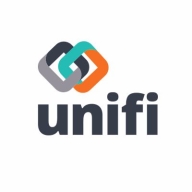

Oracle Data Integrator and Unifi are competing in the data integration market. Unifi seems to have the upper hand due to its innovative data preparation and data collaboration solutions that complement its pricing.
Features: Oracle Data Integrator provides powerful ETL capabilities, batch processing, and extensive connectivity with various databases. Unifi emphasizes ease of use with data discovery, collaborative data preparation, and machine learning integration for smarter data insights.
Ease of Deployment and Customer Service: Oracle Data Integrator offers a traditional deployment model with extensive documentation and support systems, making it dependable for complex integration scenarios. Unifi’s cloud-native architecture facilitates quick deployment and automatic updates, complemented by effective interactive guided assistance.
Pricing and ROI: Oracle Data Integrator is generally positioned with a higher setup cost, reflecting its extensive functionalities, offering high ROI in demanding environments. Unifi's pricing strategy presents a more accessible entry, particularly appealing with its emphasis on collaborative data workflows that may generate swift returns.


Oracle Data Integrator (ODI) is a data integration software solution that provides a unified infrastructure to streamline data and application integration projects. It uses a powerful design approach to data integration, which separates the declarative rules from the implementation details. The solution is based on a unique ELT (Extract Load Transform) architecture, eliminating the need for a standalone ETL server and proprietary engine.
Oracle Data Integrator Features
ODI has many valuable key features. Some of the most useful ones include:
Oracle Data Integrator Benefits
There are many benefits to implementing ODI. Some of the biggest advantages the solution offers include:
Reviews from Real Users
Below are some reviews and helpful feedback written by PeerSpot users currently using the Oracle Data Integrator (ODI) solution.
Brian D., Business Process and Strategy Specialist Advisor at NTTData, says, “The Knowledge Module (KM) is my favorite feature of ODI. This is where I learned how to use variables to make jobs dynamic. I took that knowledge and created a KM that would go into iTunes and pull the sales of eBooks. Making something that is reusable, like a KM, is important to not only reduce build time but also maintenance in the future.”
Ashok S., Applications Support Manager at a marketing services firm, mentions, "The most valuable features of ODI are the ease of development, you can have a template, and you can onboard transfer very quickly. There's a lot of knowledge modules available that we can use. If you want to connect, for example, a Sibyl, SQL, Oracle, or different products, we don't have to develop them from scratch. They are available, but if it's not, we can go into the marketplace and see if there's a connector there. Having the connector available reduces the amount of hard work needed. We only have to put the inputs and outputs. In some of the products, we use there is already integration available for ODI, which is helpful."
The Unifi Data Platform breaks down the barriers of operational data silos and democratizes information across the enterprise. At the heart of the platform is a comprehensive suite of self-service data discovery and preparation tools to empower business users. Employing machine learning and artificial intelligence technologies, and optimized for the cloud, Unifi predicts what the business user wants to visualize and then connects the resulting data natively to the BI tool for fast, accurate results.
We monitor all Data Integration reviews to prevent fraudulent reviews and keep review quality high. We do not post reviews by company employees or direct competitors. We validate each review for authenticity via cross-reference with LinkedIn, and personal follow-up with the reviewer when necessary.